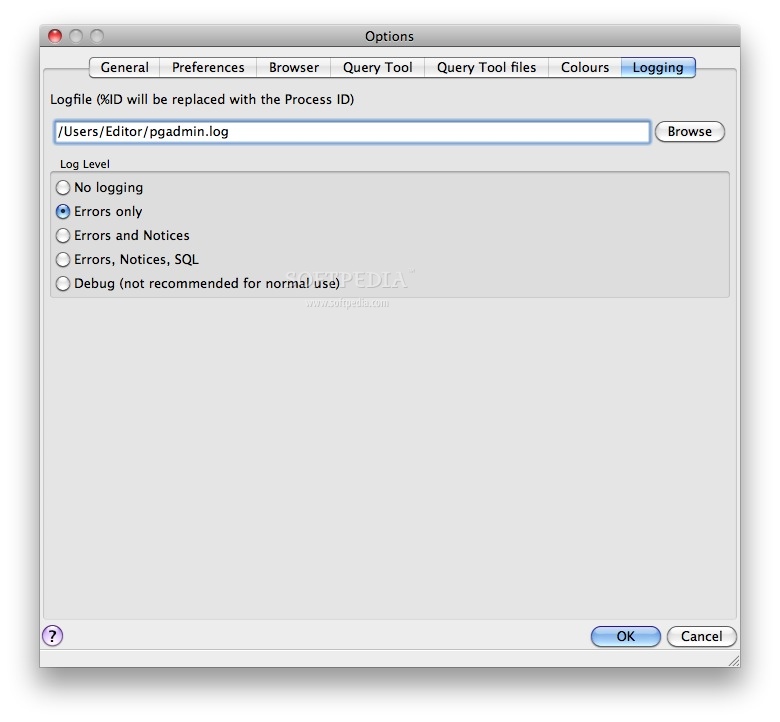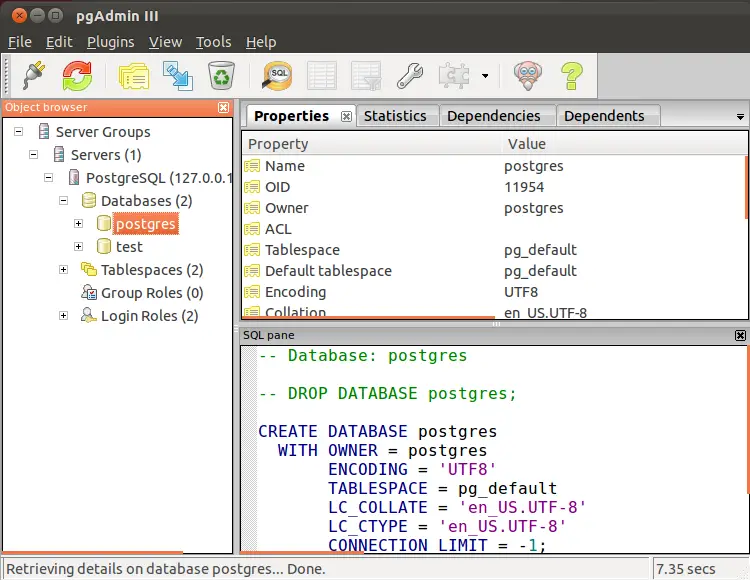pgAdmin is a free software project released under the PostgreSQL/Artistic licence. The software is available in source and binary format from the PostgreSQL mirror network. Because compiling from source requires technical knowledge, we recommend installing binary packages whenever possible.
The pages in this section give additional details about each binary package available as well as more direct download links. In addition, you can download source tarballs and pgAgent for your servers to enable additional functionality.
The pages in this section give additional details about each binary package available as well as more direct download links. In addition, you can download source tarballs and pgAgent for your servers to enable additional functionality. PgAdmin 4 is a complete rewrite of pgAdmin, built using Python and Javascript/jQuery. The pages in this section give additional details about each binary package available as well as more direct download links. In addition, you can download source tarballs and pgAgent for your servers to enable additional functionality. PgAdmin 4 is a complete rewrite of pgAdmin, built using Python and Javascript/jQuery. Monitor the streams again whilst backing up on Mac - this no longer crashes in wx2.8. Per Dave Livesay. Fix a crash on Mac that occurred when using some combo boxes, per David Lowry. Fix menu icon for Gnome Nathan Egge Allow users with SUPERUSER but no other privilege flags to create roles and databases etc. Per Andy Shellam.
pgAdmin 4
- Free pgadmin 3 download software at UpdateStar - pgAdmin III is an administration and management tool for the PostgreSQL database and derivative products such as EnterpriseDB, Mammoth PostgreSQL, Pervasive Postgres, and SRA PowerGres.
- I'm an owner of the site but evidently not of the group I created in that site, and I can't determine who IS an owner of the group. I'm using Mac OS and pgAdmin 4. Key are now: -rw- 1 root root 887 Oct 10 03:42 server. Bugs and other issues in pgAdmin are usually fixed within a very short time once they have been reported to us.
pgAdmin 4 is a complete rewrite of pgAdmin, built using Python and Javascript/jQuery. A desktop runtime written in C++ with Qt allows it to run standalone for individual users, or the web application code may be deployed directly on a webserver for use by one or more users through their web browser. The software has the look and feel of a desktop application whatever the runtime environment is, and vastly improves on pgAdmin III with updated user interface elements, multi-user/web deployment options, dashboards and a more modern design.
pgAgent
pgAgent is a job scheduler for PostgreSQL which may be managed using pgAdmin. Prior to pgAdmin v1.9, pgAgent shipped as part of pgAdmin. From pgAdmin v1.9 onwards, pgAgent is shipped as a separate application.
macOS | Windows |
You can get macOS PostgreSQL packages from several different sources.
Interactive installer by EDB
Download the installercertified by EDB for all supported PostgreSQL versions.
This installer includes the PostgreSQL server, pgAdmin; a graphical tool for managing and developingyour databases, and StackBuilder; a package manager that can be used to download and installadditional PostgreSQL tools and drivers. Stackbuilder includes management,integration, migration, replication, geospatial, connectors and other tools.
Pgadmin 3 Download Mac Download

Pgadmin 3 Download Mac Os
This installer can run in graphical, command line, or silent install modes.
The installer is designed to be a straightforward, fast way to get up and running withPostgreSQL on macOS.
Advanced users can also download azip archiveof the binaries, without the installer.This download is intended for users who wish to include PostgreSQL as part of another application installer.
Platform support
The installers are tested by EDB on the following platforms. They will generally work on newer versions of macOS as well:
| PostgreSQL Version | 64-bit macOS Platforms |
|---|---|
| 13 | 10.13 - 10.15 |
| 12 | 10.12 - 10.14 |
| 11 | 10.12 - 10.14 |
| 10 | 10.10 - 10.12 |
| 9.6 | 10.10 - 10.12 |
| 9.5 | 10.8 - 10.10 |
Postgres.app
Postgres.app is a simple, native macOS app that runs in the menubar without the need of an installer. Open the app, and you have a PostgreSQL serverready and awaiting new connections. Close the app, and the server shuts down.
Homebrew
PostgreSQL can also be installed on macOSusing Homebrew. Please see the Homebrewdocumentation for information on how to install packages.
A listof PostgreSQLpackages can be found using the Braumeister search tool.
MacPorts
PostgreSQL packages are also available for macOS from theMacPorts Project. Please see theMacPorts documentation for information on how to install ports.
A list ofPostgreSQL packagescan be found using the portfiles search tool on the MacPorts website.

Fink
Pgadmin 3 Download Mac Installer
PostgreSQL packages are available for macOS from theFink Project.Please see the Fink documentation for information on how to install packages.
A list ofPostgreSQL packagescan be found using the package search tool on the Fink website.